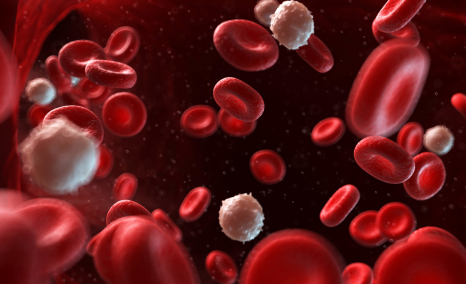Severe Combined Immunodeficiency (SCID) is an inherited primary immunodeficiency disease (PIDD) that typically presents in infancy. It is characterized by profound immune deficiency condition resulting in a weak immune system that is unable to fight off even mild infections. Severe Combined Immunodeficiency is a rare disorder caused by genetic defects that may affect the function of T cells, B cells and natural killer (NK) cells. ADA-SCID also known as Bubble Boy Syndrome is caused by the deficiency of enzyme adenosine deaminase which is coded by a gene present on chromosome 20.
Adenosine deaminase (ADA) deficiency is a rare inherited disorder that damages the immune system and causes severe combined immunodeficiency (SCID). It is the second most prevalent form of Severe Combined Immunodeficiency comprising of almost 15% – 20% of all SCID cases. ADA deficiency is caused by changes (mutations) in the ADA gene and is inherited in an autosomal recessive manner.
ADA-SCID has an overall incidence of approximately 1 in 100,000 to 200,000 live births in the US. For the United Kingdom, the vignette produced by Professor Bobby Gaspar stated that in 2008 and 2009, 20 children per year presented with SCID to the two UK centers for care (Great Ormond Street Hospital and Newcastle General Hospital). This suggested an incidence of approximately 1 in 35,000 to 660,000 live births in the UK. In 7 Major Markets (US, France, Germany, Italy, Spain, UK and Japan), the total prevalent cases of ADA-SCID were 2,910 in 2015.
Currently, the ADA-SCID therapeutics market comprises of only two marketed products including Adagen (Leadiant Biosciences), a PEGylated bovine adenosine deaminase enzyme (ADA) injection and Strimvelis (GlaxoSmithKline), an ex-vivo hematopoietic stem cell (HSC) gene therapy. Adagen was approved in 1990 as the first enzyme replacement therapy for the treatment of ADA-SCID. Strimvelis got the approval in May 2016 which revolutionized the whole ADA-SCID market in Europe. The market size of ADA-SCID was USD 7 million in 2015 due to dip in Adagen sales and lesser available options.
The ADA-SCID pipeline has only three products under development namely Elapegademase (Phase III); OTL-101 (Phase II); OT-81 (IND Stage). However, for Elapegademase there is no late-stage clinical data available. On the other hand, OTL-101 has demonstrated a favorable safety and efficacy profile in the Phase II trials. DelveInsight estimates that late entry of OTL-101 by 2022 will boost the ADA-Severe Combined Immunodeficiency market. However, early approval and rigorous commercialization strategies give Strimvelis the slightest of edges over the promising OTL-101 during the forecast period (2025).
There is a huge unmet need for proper diagnosis of the disease. Most of the cases go undiagnosed or get diagnosed at a later stage making it tough to administer timely treatment. Being a rare disease the research activity in this space is not very robust.



